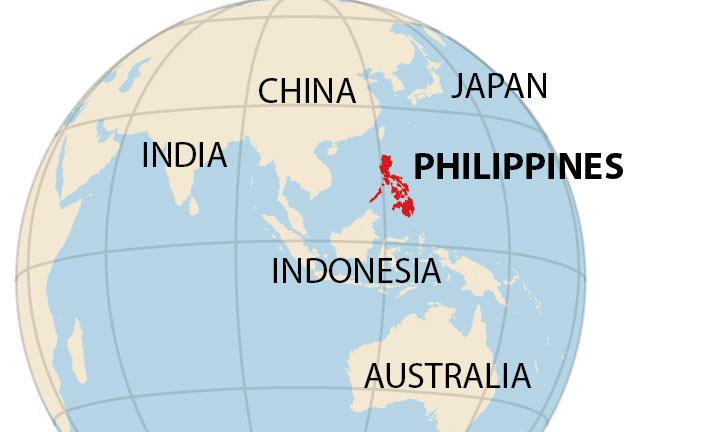IEEFA: Philippines coal moratorium highlights dramatic pivot to renewable energy investment for lower prices and power system resilience

3 November 2020 (IEEFA Philippines): The Department of Energy’s call for a moratorium on greenfield coal power plants marks a clear break with past policies and comes as the Philippines prioritizes the need for more resilient, flexible and lower cost alternatives to fossil fuel baseload power, finds a new report from the Institute for Energy Economics and Financial Analysis (IEEFA).
Author of the report, energy finance analyst Sara Jane Ahmed, says the decision makes clear the Department’s aim to modernize the power system with new technology options and with it, USD 30 billion of investment in renewable energy.
“The Philippines power market’s problems have been exacerbated by the pandemic, and now Super Typhoon Rolly urgently raises the need to shift to distributed modular renewable energy and resilient grids,” says Ahmed.
“THE INFLEXIBILITY OF KEY POWER GRIDS HAS LED TO REGULAR OUTAGES AND INCREASED DISRUPTION due to more volatile demand patterns.
The Philippines aims to build a more cost-competitive and resilient energy future
“Leadership from the Energy Secretary and Finance Secretary makes clear that the Philippines aims to build a more cost-competitive and resilient energy future by shifting to clean energy resources and green technologies.”
Ahmed notes imported coal plants, the mainstay of the Philippines energy system to-date, are unable to operate below a minimum stable value due to their inherent inflexibility. As a result, they are forced to shut off. In May 2020 alone, coal-fired power units were responsible for 60% of outages.
The moratorium on greenfield coal power plants means that new planned coal projects will no longer receive permits from the Department of Energy.
New planned coal projects will no longer receive permits from the Department of Energy
“This is a welcome development,” says co-author Melissa Brown, director of energy finance studies, Asia.
“POWER SECTOR STAKEHOLDERS CAN NOW PRIORITIZE CHEAPER RENEWABLE ENERGY AND STORAGE PROJECTS that deliver lower costs and price stability while also delivering domestic energy security.
“The added bonus is electricity prices for consumers are likely to become more competitive.”
Ahmed notes that it’s now up to the Energy Regulatory Commission (ERC) to take additional steps to reinforce the Department of Energy’s new policy direction. Removing the pass-through for fuel costs should be a high priority along with implementation of curtailment clauses. The current pass-through structure unfairly punishes consumers that have no ability to hedge volatile fuel costs. According to Ahmed, curtailment clauses would make it possible to stop fossil fuel lock-in when outdated fixed contracts can be used to block low cost renewable energy from entering the system.
The current pass-through structure unfairly punishes consumers
“While the Philippines power industry leaders should be well positioned to shed these high cost projects, it is ultimately the ERC that determines affordability by learning from the coal experience,” says Ahmed.
“SAN MIGUEL AND MERALCO BOTH HAVE OUTDATED TECHNOLOGY IN THEIR NEW PROJECT PIPELINE, but they have also positioned themselves to be part of the energy modernization.
“As the energy system moves away from its over-reliance on baseload coal, the grid will need to be modernized and upgraded to support more variability and to integrate new smart grid technologies. With the right incentives, we expect industry leaders will help drive this change.
“The deflationary price trajectory of domestic renewable electricity generation and storage triumphs over the cost of generating power by large fossil fuelled power plants.”
Investors looking to sell expensive, outdated coal technology are no longer welcome
Ahmed says the Department of Energy in partnership with the National Renewable Energy Board should immediately update the National Renewable Energy Program (NREP) to reflect the policy shift from centralized baseload plants to distributed generation and the preference for indigenous and renewable energy. The NREP should also be incorporated into the Philippine Energy Plan as well as the Power Development Plan.
She also says foreign investors looking to invest in modern renewable energy technologies can expect more supportive policies that will prepare the market for a more diverse generation mix and resilient power system.
“Investors looking to sell expensive, outdated coal technology are no longer welcome.”
Author contact: Sara Jane Ahmed ([email protected]) and Melissa Brown ([email protected])
Media contact: Kate Finlayson ([email protected])
About IEEFA: The Institute for Energy Economics and Financial Analysis (IEEFA) examines issues related to energy markets, trends and policies. The Institute’s mission is to accelerate the transition to a diverse, sustainable and profitable energy economy. (www.ieefa.org)













